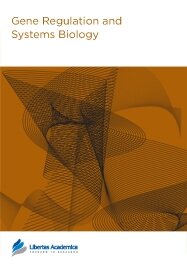

Publication Date: 25 Jun 2012
Type: Review
Journal: Gene Regulation and Systems Biology
Citation: Gene Regulation and Systems Biology 2012:6 109-125
doi: 10.4137/GRSB.S9852

High-throughput ‘omics’ data analysis via bioinformatics is one key component of the systems biology approach. The systems approach is particularly well-suited for the study of the interactions between nutrition and physiological state with tissue metabolism and functions during key life stages of organisms such as the transition from pregnancy to lactation in mammals, ie, the peripartal period. In modern dairy cows with an unprecedented genetic potential for milk synthesis, the nature of the physiologic and metabolic adaptations during the peripartal period is multifaceted and involves key tissues such as liver, adipose, and mammary. In order to understand such adaptation, we have reviewed several works performed in our and other labs. In addition, we have used a novel bioinformatics approach, Dynamic Impact Approach (DIA), in combination with partly previously published data to help interpret longitudinal biological adaptations of bovine liver, adipose, and mammary tissue to lactation using transcriptomics datasets. Use of DIA with transcriptomic data from those tissues during normal physiological adaptations and in animals fed different levels of energy prepartum allowed visualization and integration of most-impacted metabolic pathways around the time of parturition. The DIA is a suitable tool for applying the integrative systems biology approach. The ultimate goal is to visualize the complexity of the systems at study and uncover key molecular players involved in the tissue’s adaptations to physiological state or nutrition.
PDF (1.32 MB PDF FORMAT)
RIS citation (ENDNOTE, REFERENCE MANAGER, PROCITE, REFWORKS)
Supplementary Files 1 (305.52 KB XLSX FORMAT)
BibTex citation (BIBDESK, LATEX)
XML
PMC HTML

Publishing in Gene Regulation and Systems Biology was a very positive experience. I was impressed by the fast and uncomplicated submission process as well as the clear and professional peer review process which helped to improve the manuscript. The Libertas Academica team was very patient and helpful. I would definitely recommend the journal to other colleagues in the field!
Facebook Google+ Twitter
Pinterest Tumblr YouTube